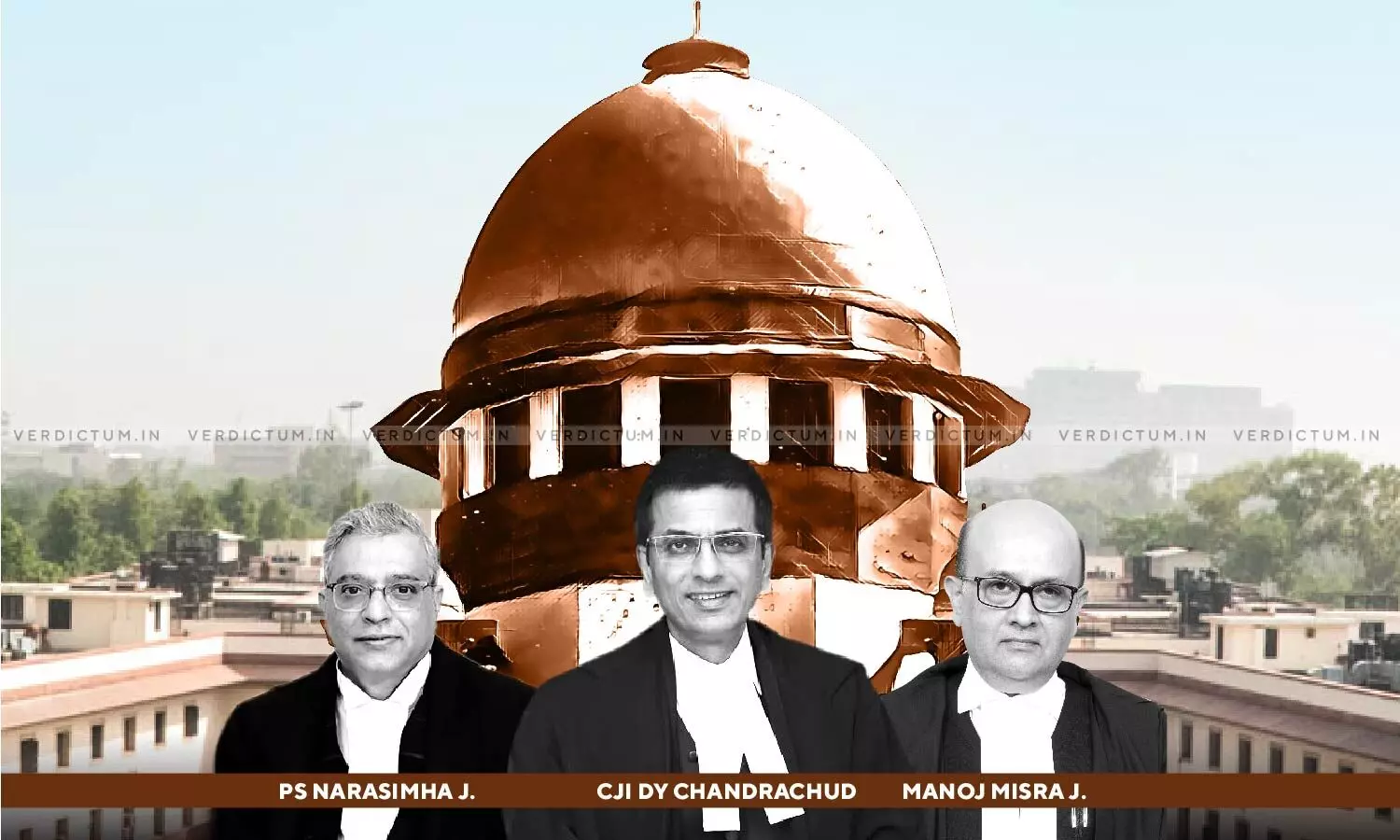
SC Dismisses Plea Challenging Rejection Of Appointment As Additional Teacher In Meghalaya Govt Aided School For Being Overaged
 |
|The Supreme Court on Tuesday refused to entertain a Special Leave Petition (SLP) challenging an order of the Meghalaya High Court wherein it had denied granting relief to a candidate challenging the rejection of her appointment as an Additional Teacher in a government-aided primary school at Shilong for being above 35 years in age.
In the matter, the main contention that was raised was that the advertisement released by the School only mentioned one requisite which is Bengali as a mandatory subject at the Graduate level but did not mention age as a bar. The absence of publication of the letter of communication by the State Government to that effect was thus questioned in the plea.
A Division Bench of the Meghalaya High Court reprimanding the State in its judgment dated February 28, 2022, had observed, “The entire confusion has been created by the manner in which the State has conducted itself and, despite the State, its legislature and the bureaucracy now being in place for more than 50 years, there is a level of maturity that seems to be lacking in its functioning”.
A bench of Chief Justice of India D.Y. Chandrachud, Justice P.S. Narasimha, and Justice Manoj Misra after hearing the matter, accordingly dismissed the petition.
Senior Advocate Huzefa Ahmadi appeared for the petitioner-respondent and Senior Advocates BK Sharma and Kaustav Paul appeared for the respondents.
In the present matter, an advertisement was issued in the year 2014 inviting applications for interested persons to be appointed as a Bengali teacher in the respondent school. However, the advertisement did not refer to any age.
Upon concluding the entire process, the school duly applied to the State, recommending the appointment of the writ petitioner as the most suitable candidate in course of the selection process.
However, the Sub-Divisional School Education Officer rejected the candidature as she was overage.
Therefore, on approaching under Article 226 of the Constitution of India, the writ court granted the benefit to the present petitioner, whose appointment was rejected by considering several cited previous instances of teachers in government-aided schools appointed at a time that they had crossed 35 years of age.
The same was challenged before a division bench comprising Chief Justice Sanjib Banerjee and Justice W. Diengdoh by the respondent in the writ petition, also the respondent no.1 in the present SLP , who was the second placed candidate in the selection process.
On behalf of the petitioner, while citing Sub-rule (2) of Rule 1 of the Assam Service Rules, it was asserted that when there is no bar even to a 60-year-old continuing to teach in government-aided schools in the State, there can be no age-bar of 35 years followed as the relevant rules do not specify as such.
However, the respondent school had contended that it was not aware of there being any age-bar pertaining to the appointment and the regular practice having been to fill up any vacancy.
It was further submitted that a mere communication issued from one table of the ministry or department to another would not become binding on government-aided schools unless the same was duly notified and circulated and made known to the government- aided schools.
The High Court bench then took note of the letter of communication dated June 8, 2010, which had specifically provided for a clause on the same, it said, “…It is clear from such communication that the upper age-limit for general category candidates was set at 35 and a five-year latitude was given to scheduled castes and scheduled tribes candidates, while OBC candidates enjoyed an age relaxation of three years. There can be no ambiguity as to the interpretation of the relevant communication of June 8, 2010 and it must be noticed that it was a communication exchanged within the Directorate of School Education and Literacy or, at any rate, within the relevant Ministry in the State without being marked or circulated to, particularly, the government-aided schools”.
The bench also took note of the fact that the State was not involved in the selection process nor did the State sanction the engagement of additional teachers over and above the sanctioned posts for the respondent school.
“Accordingly, as far as the State was concerned, it could not recognise such privately engaged additional teachers and, for the State, it was only the selection process conducted upon the vacancy arising that was of relevance. This, clearly, was a case of appointment as far as the State Government was concerned and the fact that the recommended candidate had been privately engaged and continued as an additional teacher prior to the selection process being conducted, could carry no weight with the State Government”, the order of the High Court further read.
The bench also directed the State to be careful and should ensure that its decisions that affect government-aided schools are immediately communicated to such bodies for them to adhere thereto to avoid such instances in the future.
Cause Title: Sujata Deb Roy v. Manjusree Dutta & Ors.
Click here to read/download the Order